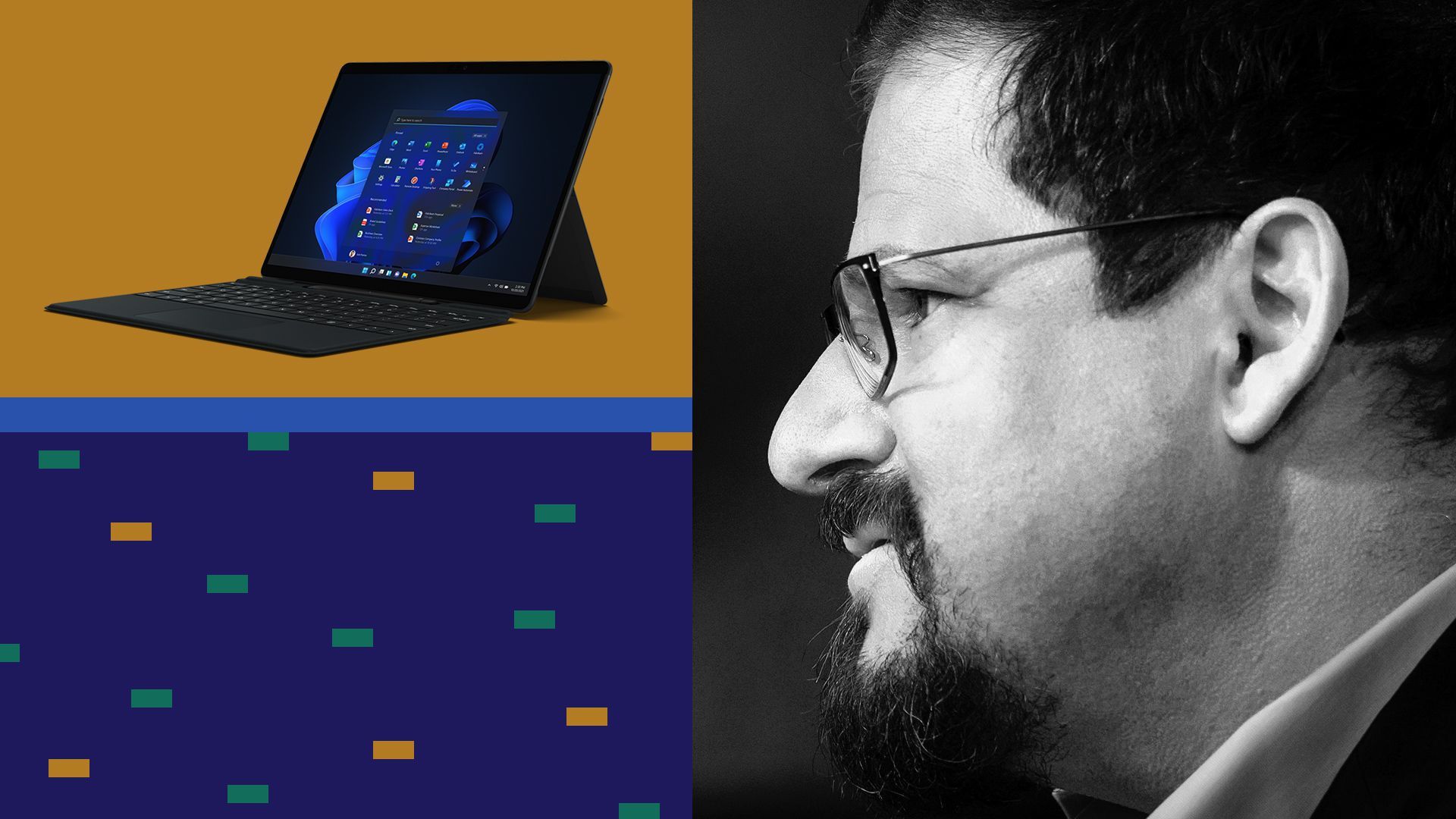CEO Cristiano Amon reflects on a changing Qualcomm
Add Axios as your preferred source to
see more of our stories on Google.

Photo illustration: Axios Visuals. Photos: Microsoft, David Paul Morris/Bloomberg via Getty Images
Cristiano Amon, who took over as Qualcomm CEO earlier this year, says the company will look much different in three years' time, with PC chips finally making up a more meaningful part of its revenue and Apple's business little more than a blip.
Why it matters: Qualcomm helped create the modern cellphone industry and is the largest remaining U.S.-based force in setting cellular standards, in addition to being the largest maker of mobile chips.
- While most of the company's revenue and profits come from smartphone chips, that market is mature, and Qualcomm is looking toward cars, computers and mixed reality headsets to provide its next wave of growth.
- "Mobile technology is going everywhere," Amon said in an interview ahead of Qualcomm's Snapdragon Tech Summit in Hawaii, which kicked off yesterday with the introduction of the company's latest 5G processor and modem.
The big picture: Qualcomm's bigger challenge remains extending its smartphone prowess to areas like automotive and PCs where other chipmakers, such as Intel and Nvidia, offer formidable competition.
- Qualcomm has predicted it will make headway in PCs for a long time, but nearly all PCs sold still use chips from Intel or AMD.
Yes, but: Amon insists it's different now, with the PCs and phone ready to converge as more data is stored in the cloud and accessed via speedy WiFi or 5G connections, areas where its chips excel and offer superior battery life.
- Qualcomm's $1.4 billion acquisition of Nuvia should give it the performance it needs to compete with Intel head on, Amon says. However, PC chips using Nuvia's technology won't debut until 2023, Amon acknowledged.
- When it comes to cars, Amon acknowledged Qualcomm is the newcomer to the market, but notes the company now has business with 25 of the top automakers from around the world.
In VR and AR, Qualcomm has a more significant presence, but it remains unclear when the market will really take off and how big it could get.
- Amon said he is more optimistic than some, noting Meta's success with Oculus Quest and predicting the Chinese market will be the next to see significant adoption of VR.
As for Apple, Qualcomm told analysts that it is modeling its business on the assumption that its modem chips are used in less than 20% of next year's iPhones and that, exiting fiscal 2024, Apple will make up a low single-digit percentage of Qualcomm's chip unit revenue.
- If Apple stumbles in its quest to make its own modems, Amon said Qualcomm will be ready to take on the added business. "We're always ready," Amon said.
Disclosure: Reporting for this article took place at Qualcomm's Snapdragon Tech Summit in Hawaii, where I am moderating a conversation on Thursday. Qualcomm paid for my travel-related costs.
